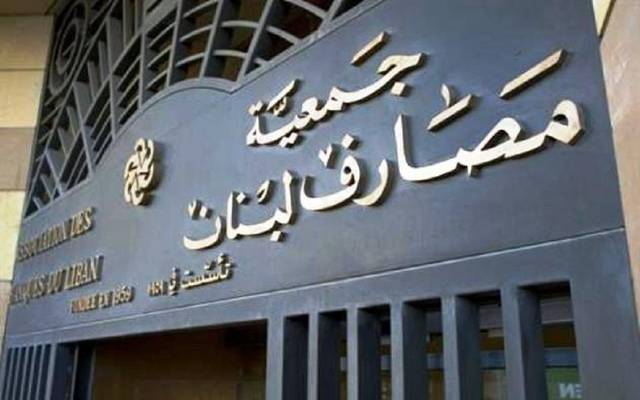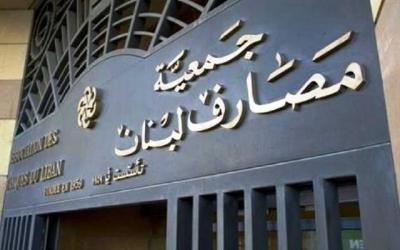The newspaper "Al-Jomhouria" reported: Lebanon did not need a new international certification of its deteriorating situation, as this has been evident for over two years on the faces of the people, marked by the signature of a ruling elite and parties feasting on the crisis. This elite bears significant responsibility for granting Lebanon its certificate of decay. The latest classification in the "Annual Happiness Report" issued under the supervision of the United Nations accurately reflects the Lebanese reality, placing Lebanon second to last among the world's least happy countries, ahead of only Afghanistan. However, despite the credibility of this new international rating, it harbors a major flaw that renders it incomplete, as it overlooked—certainly unintentionally—a classification equally as grim as the loss of happiness: Lebanon occupies the first rank—perhaps the only country in the world—afflicted by a type of ruling and political class, characterized by misery, utilizing its positions, offices, and the law, not for the benefit of Lebanon and addressing a suffocating crisis, but for political ambitions and personal vendettas. This has manifested in various instances, with the latest being the ignited clashes between some judicial authorities and banks, opening the country to political, judicial, and financial repercussions directly linked to a broad segment of employees at risk of losing their salaries.
### Maritime Demarcation
Amid internal focus on the upcoming parliamentary elections set for mid-May and the concerned parties preparing for logistical and alliance-related preparations, the issue of maritime demarcation has risen back to the forefront of priorities during this period, amid discussions of a new visit to Beirut by US mediator Amos Hochstein soon. In this context, Lebanon has finalized its official position regarding Hochstein's proposal on Southern maritime border demarcation during a meeting held yesterday at the presidential palace in Baabda, chaired by President Michel Aoun (who is preparing for a visit to the Vatican), attended by Speaker Nabih Berri and Prime Minister Najib Mikati. The meeting, which lasted nearly two and a half hours, focused on the proposal submitted by US mediator Hochstein regarding the demarcation of the Southern maritime borders. During the meeting, the results of the technical committee formed by representatives from the presidency and government, the army command (Hydrographic Service), and the Petroleum Sector Management Authority to review Hochstein's proposal were presented. The attendees discussed observations and inquiries regarding the proposal to arrive at a unified stance ensuring the preservation of Lebanon's rights and full sovereignty over its maritime borders. After discussions, it was decided to urge the United States to continue its efforts to complete negotiations for maritime border demarcation, according to the framework agreement that preserves Lebanon's higher interest and regional stability. The attendees emphasized that this issue is distinctly national and should remain free from pointless political bickering.
### Judicial-Banking Clash
According to the atmosphere surrounding this conflict, it is still in its early stages. The judicial aspect, particularly in the decision taken by Judge Mariana Al-Anani head of the Execution Department in Beirut to seize "Fransabank," followed by the decision of the Prosecutor General of Mount Lebanon Judge Ghada Aoun to escalate against the Governor of the Central Bank Riyad Salameh, preparing to summon him again and detain his brother Raja Salameh, is proceeding with these measures regardless of their outcomes. Meanwhile, on the other side, there seems to be a political mobilization to mitigate what some ministerial sources described as "the dangerous repercussions of these measures, feared to have political origins and implications," which will be on the agenda of the Cabinet meeting decided to be held today at the presidential palace in Baabda. While the two decisions found support on social media, as well as from some judges and enthusiasts among activist forces, or from forces that do not hide their "hostility" towards banks and the Central Bank governor, they were met with ambiguity by other judicial entities.
In this regard, regardless of their stance on banks and their role in exacerbating the crisis and withholding depositors' funds, legal sources assert that deterrent measures should primarily serve the people and depositors, especially employees. They should not generate negative outcomes solely impacting depositors and employees. Concerning Judge Al-Anani's decision against "Fransabank," the action taken against this bank, according to sources, is a legal measure but rather than targeting an individual case exclusively, its effects have been general. The law is fundamentally meant to serve the people, not harm them. There is no dispute that the measure against "Fransabank" is legal; however, it is also correct that this measure has taken with it all those with funds in this bank, neglecting to consider first the employees who receive their salaries through this bank, as well as all those involved in financial dealings with it, all of whom are unrelated to the cause of the seizure and freezing of the bank's cash, which includes money belonging to thousands of citizens and employees.
It was possible, in the legal sources' opinion, for Judge Al-Anani to take action based on the estimated amount of the plaintiff’s deposit, based on which the general seizure decision was made, and thus issue a seizure decision on assets or similar that equals or exceeds the disputed deposit in the concerned bank, but not more than that. It is noteworthy that the cries of those with money in "Fransabank," especially employees across various sectors, have intensified alarmingly, especially as it exacerbates their burdens and pressures in the worst financial and living conditions they are facing, noting that most were unable to withdraw their full salary last month, with half still withheld in the bank.
### Lebanon and Banque du Liban
It appears that the wave of seizures has continued, with the executive seizure on "Fransabank" followed by a seizure yesterday on all branches of the Bank of Lebanon and the Mediterranean in Tripoli. The head of the execution department in Tripoli, Bassam Nasr, decided to notify the Bank of Lebanon and the Mediterranean of the executive notice and simultaneously place the executive seizure report on the cash and assets within the bank's safes, except for those belonging to depositors (i.e., the safety deposit boxes). The plan also involved removing the depositors' safes from the siege to facilitate the affairs of depositors and replenish ATMs. If a single safe is available, amounts of cash will be removed for use in replenishing the ATMs and managing depositors' matters at the four branches located in Tripoli: Al-Zahariyyeh, Al-Bolivar, Abi Samra, and Azmi Street.
### Ongoing Legal Confrontation with Central Bank Governor
On a parallel front, the confrontation file with the Governor of the Central Bank is progressing. Reports indicated yesterday that Judge Aoun charged Central Bank Governor Riyad Salameh and his brother Raja Salameh with "neglecting duties, squandering public funds, and breach of trust," referring the case to the Head Investigating Judge in Mount Lebanon, Judge Nicolas Mansour, requesting to interrogate the accused and make appropriate decisions based on the interrogation process results.
While Judge Aoun confirmed she would continue her mandate and announced she would not succumb to pressures, questions arise about the intensity with which this file is being handled. There are questions regarding the path this file will follow after the last decision made by Judge Aoun to arrest the brother of the Central Bank governor. Supporters of Judge Aoun consider she is exercising her powers within the legal boundaries; conversely, there are reservations regarding her actions, suggesting they are politicized, and regarding an issue primarily within the remit of the financial public prosecution, which has entered through the portal of the law against unjust enrichment. Additionally, legal opinions suggest that although the current situation may be accompanied by political or judicial uproar, the final verdict will ultimately take place in the "court of origin," whether supporting Judge Aoun's direction or nullifying all her actions.
### Implications and Bank Strike
While there was a noticeable influx of citizens calling banks yesterday, fearing a potential closure in protest against the recent judicial actions, banks were on high alert, holding a general assembly to study judicial measures and take positions regarding them. This concluded with announcing a warning strike for the coming Monday and Tuesday. The assembly deemed this a first step to alert and raise awareness about the gravity of the current situation, demanding a correction of the existing imbalance, the swift enactment of a capital control law, and the approval and start of a recovery plan while reserving the right to take further necessary steps to preserve the national economy and Lebanon's greater interest.
### Aoun's Remarks
In this time, President Michel Aoun remarked that "the media campaigns which intensified over the past two days, attempting to link the role of the Presidency with the judicial measures taken against several banks, are the peak of distortion, slander, and deception, and a definitive result of the lawlessness Lebanon is experiencing on multiple levels, and the persistence in undermining state institutions and applicable laws." During his meeting with members of the Electoral Supervisory Committee, Aoun stated that everything published in some newspapers and media, as well as social media about "confrontations" between the presidency and banking officials, is a product of imagination, aiming to politicize this purely judicial matter and inventing fictitious battles, falsely linking it to the upcoming parliamentary elections on May 15.
He pointed out that "the presidency has never intervened in the work of the judiciary, respects its independence, and has no involvement in the measures taken; conversely, it follows up on the forensic audit file in the accounts of the Central Bank, in accordance with the law issued in this regard, as part of combating corruption and revealing the causes behind the financial deterioration that afflicted the state." Aoun remarked, "All of this confusion can be avoided through the approval of a financial recovery plan in agreement with the International Monetary Fund, including the passage of the capital control law, which the government must expedite in finalizing."
In this context, a tweet by the leader of the Free Patriotic Movement, MP Gebran Bassil, wrote: "Their fairy tales never end, the latest being accusing us of banking chaos to postpone the elections... A sick mind and a paid media; from the accusation of bargaining with expatriate MPs and the mega center, their imagination never exhausts. We want successful banks to fund the economy and an honest judiciary to hold accountable those who escaped and stole, and elections on time; this is our opportunity to cement our popularity."
### Mikati's Response
Furthermore, the judicial and banking updates were discussed by Prime Minister Najib Mikati with Justice Minister Henry Khoury. Mikati affirmed that "the commitment to judicial independence and non-interference in judicial affairs is parallel to the commitment to stability in the country from all perspectives, particularly financial ones." He stated, "The judiciary has the right to investigate any financial and banking file, especially since recovering depositors' rights is the priority and is the fundamental constant in all negotiations we conduct with the International Monetary Fund and all concerned parties. However, employing populist and police-like methods in the investigations has harmed and continues to harm the judiciary first and the banking system as a whole."
Mikati pointed out that "it is evident that the course of events with some judiciary is leading towards creating undesirable tensions, and there are attempts to exploit this tension in electoral campaigns. This is a serious matter we have previously warned against." From this standpoint, he reiterated the request for the relevant judicial authorities to take the initiative to correct what is happening, following known procedures, and to push for a return to the principle of restraint, rather than leaving matters in the manner that has devastating repercussions on the judiciary and one of the economic pillars in Lebanon, which will play a crucial role in the recovery process."
In summary, following the meeting between Mikati and the Justice Minister, it was agreed to request the Head of the Cassation Prosecution, Judge Ghassan Oueidat, to take appropriate actions on this file.




